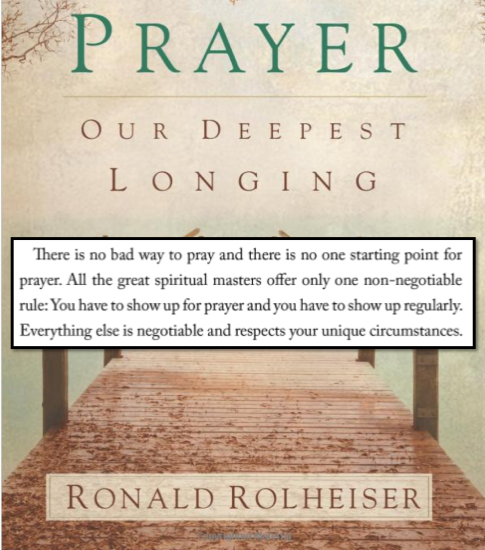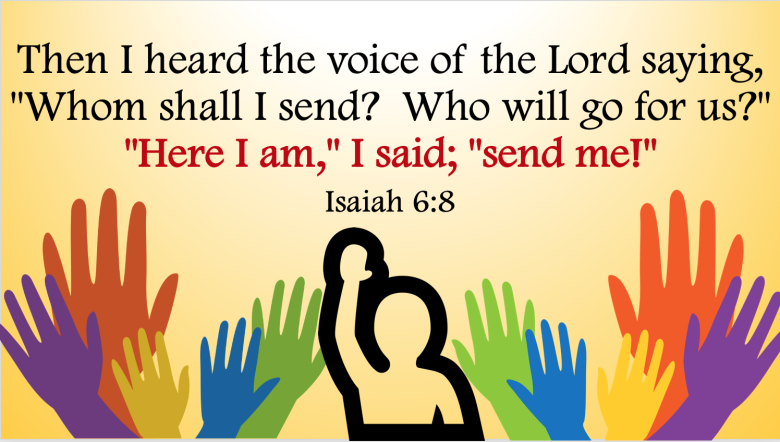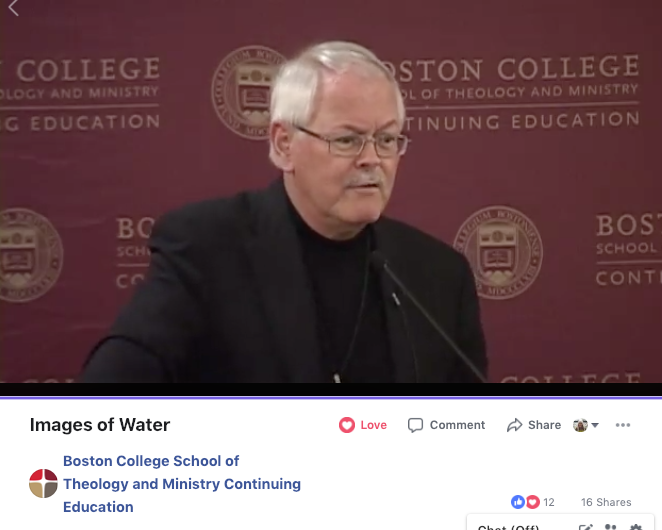In my family of voracious readers, we refer to the list of books we have lined up to read as “the queue.” So many books have been suggested in so many categories, they line up… and generally they’ll be read in the order in which they were received. Sadly, sometimes that line is longer and slower than the DMV because… well, time is limited.

Just this week, there was a series of coincidences [read: Holy Spirit] that led me to Ronald Rolheiser’s book Prayer: Our Deepest Longing (2013). I recognized the author from working with ACTS Retreats, because Holy Longing (2009) – Fr. Rolheiser’s incredible book on Christian discipleship – has a chapter dedicated to Paschal Mystery spirituality, which is cited in the Director’s Manual, as it is at the heart of the ACTS Retreat. Fr Rolheiser, OMI is president of the Oblate School of Theology in San Antonio, Texas, which is also the home of ACTS Missions.

What happened was, Boston College’s School of Theology and Ministry Continuing Education has been advertising an opportunity to participate in a 5-week online book club on Prayer: Our Deepest Longing. BC STM’s Continuing Ed Facebook page had a video of Fr. Rolheiser offering some insights from his book on Prayer. The short video had me intrigued, but my “queue” is getting ridiculously long.
But, Holy Spirit.
So, I decided to try my first audiobook on “Audible,” I figured that I could listen while cleaning my kitchen, running errands, and what-have-you. Although the rest of the world may have known the joys of audiobooks for years (especially while driving), it’s completely new to me.
Thank you, Holy Spirit; it was exactly what I needed! To be honest, after listening to the first three chapters, I ordered a hard copy of the book just so I can underline and post-it-flag for easy reference. It’s THAT good!
Prayer: Our Deepest Longing is a book that has already nourished my own prayer life, and it’s one I wholeheartedly recommend to anyone seeking to deepen their prayer life – from beginners to seasoned prayer warriors. Read it, listen to it, or even consider trying BC’s online book club!
Somehow, Rolheiser manages to be both encouraging and challenging. He had me at the preface:

“There is no bad way to pray….[There’s] only one non-negotiable rule: You have to show up for prayer and you have to show up regularly.”
I hope you find a way to enjoy Prayer: Our Deepest Longing. If you do, come back and leave a comment about your favorite insights!
From Amazon’s website:
With simple, down-to-earth language, Rolheiser illustrates the importance of prayer and offers techniques for how to pray, using examples from daily life, Scripture, and contemporary writers. He delves into the places that we fear to go with our issues about prayer, encouraging us with gentle kindness and words of hope and inspiration.
The book is divided into five sections.
- Why Pray? Illustrates the purposes and benefits of prayer for ourselves, as well as for the broader Catholic community and even the world.
- Why Is It so Hard? Notes how our contemporary culture conspires against taking time out for solitude and prayer, and how our own ego—with its fears, restlessness, and narcissism—can work against developing a deeper relationship with God through prayer.
- What Is Prayer? Outlines the two basic types of prayer, that is, affective (personal) and priestly (for the world). Describes the many ways or methods for each type of prayer, such as meditation, contemplation, the divine office, the Mass, and Scripture.
Sticking with It. This section covers the development of mature prayer, discussing ways to pray in times of boredom, disillusionment, crisis, helplessness, or after a loved one’s death.
- Mysticism. Here we learn about this increasingly popular form of intimate relationship with God.
This is a book for all manner of believers, whether your faith is solidly rooted, wavering between childhood religion and adult faith, or just not sure what you believe—or whether you believe at all. It addresses topics such as narcissism, pragmatism, efficiency, and self-gratification that work against a healthy spiritual life. Rolheiser takes us to a place of contact and comfort, in relationship not only with God but with our true selves as well.













